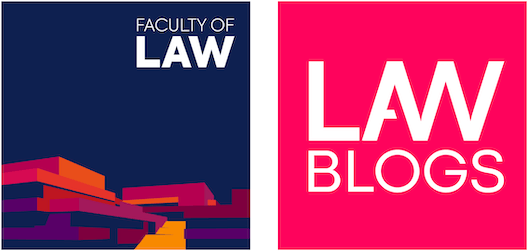Pratik Datta: 'Judicial Review and Money Bills'
In a talk organised by the South Asian Law Discussion Group, Mr Pratik Datta, an MSc candidate in Law and Finance at the University of Oxford, discussed the nuances and legal controversies surrounding the judicial review of money bills in India.
Posted:
Time to read:
Judicial review of the Speaker’s decision to categorise a bill as ‘money-bill’
Article 110(3) of the Constitution of India states that “if any question arises on whether a Bill is a Money Bill or not, the decision of the Speaker of the House of the People thereon shall be final”. During his talk, Pratik examined the ramifications of the meaning of Article 110(3) and whether the provision could be construed to imply that the Indian Supreme Court cannot review the speaker's certification of a bill as a ‘money bill’.
Pratik argued that the issue of categorisation of a bill as a money bill is of immense contemporary relevance in India, especially in view of the constitutional challenge to the Aadhaar Act, 2016 (which received legislative approval as a money bill), currently being heard by the Indian Supreme Court. Pratik showed how categorising non-money bills as money bills to facilitate easier legislative approval has been rampant in the last few years. For instance, the Specified Bank Notes (Cessation of Liabilities) Bill, 2017 was passed by the Lower House as a ‘money bill’ to fully implement the recent demonetisation scheme. These examples underscore the potential abuses of the money bill route.
Despite the above, the Indian Supreme Court has consistently refrained from exercising its power of judicial review to check such abuse. The Supreme Court has consistently held that the Speaker’s certificate, even if it is in violation of the Constitution of India, is merely an “irregularity of procedure” and hence cannot be subject to judicial review as per Article 122 of the Constitution of India. Pratik argued that judicial review of the Speaker’s certificate is not excluded as an “irregularity of procedure” under Article 122(1).
“Irregularity of Procedure”
Article 122(1) of the Constitution of India protects “proceedings in Parliament” from being “called into question on the ground of any alleged irregularity of procedure”. Pratik stressed on the importance of understanding the meaning of the word ‘procedure’ in this provision. Articles 118 to 122 have been clubbed under the heading ‘Procedure Generally’. Article 118(1) empowers each House of the Parliament to make rules for regulating “its procedure and conduct of its business” subject to the provisions of the Constitution of India. Article 119 empowers Parliament to enact laws to regulate the “procedure” in Parliament in relation to financial business”. Such law overrides any rule made under Article 118. In this context, Article 122(1) prohibits judicial review of “irregularity of procedure”. Here ‘procedure’ refers only to procedure in rules made under Article 118 or in a law under Article 119. Effectively, if the House chooses to make a procedure for itself, violation of such procedure by the House itself cannot be questioned in a court of law. Pratik therefore concluded that if the Constitution of India prescribes a procedure to be followed by a House (as in the case of money bills), a violation of such constitutional procedure is not immune from judicial review under Article 122. In other words, the phrase “irregularity of procedure” in Article 122 does not cover constitutional procedure. Therefore, the protection from judicial review granted by Article 122 cannot be stretched to protect non-compliance or breach of a constitutional procedure like the special procedure for money bills under Articles 109 and 110.
In relation to the above argument, the primary discussant Ms Mariyam Kamil, put forth a pertinent question on how the larger issue in relation to judicial bar on review of the decision to certify a bill as money bill would lie in Article 122(2) (not Article 122(1) as argued above) which provides for a clear bar on judicial review of the exercise of power by an officer of the Parliament. Pratik responded by impressing upon how a majority of the case law deal with Article 122(1) as being the source of tension and thus far, the concerns in relation to Article 122(2) have not been sufficiently addressed.
Requirements as to recommendations and previous sanctions
Finally, Pratik pointed out the argument that Article 255 of the Constitution of India protects any central or state legislation from being rendered invalid merely because “some recommendation or previous sanction required under this Constitution” was not given, thereby protecting any legislations wrongfully passed as ‘money bills’. He stated that effectively, Article 255 treats “requirements as to recommendations and previous sanctions” as “matters of procedure only” and therefore such matters are outside the purview of judicial review. However, Pratik argued that Article 255 does not treat the requirement of certification of a bill as ‘money bill’ by the Speaker under Article 110(4) as a “matter of procedure”. This is because Article 255 only uses the words “recommendation” and “sanction”; not “certificate” or “certification”. This assumes significance because in the Constitution of India, “recommendation” and “sanction” are given primarily by the President and Governors, and not by the Speaker.
The discussion concluded with Pratik and Mariyam agreeing on the need for constitutional reform in relation to the speaker’s powers of certification of bills as money bills. As a starting point for such constitutional reform, one may wish to draw from the Irish and UK constitutional frameworks, which provide for similar procedural safeguards.
Share:

